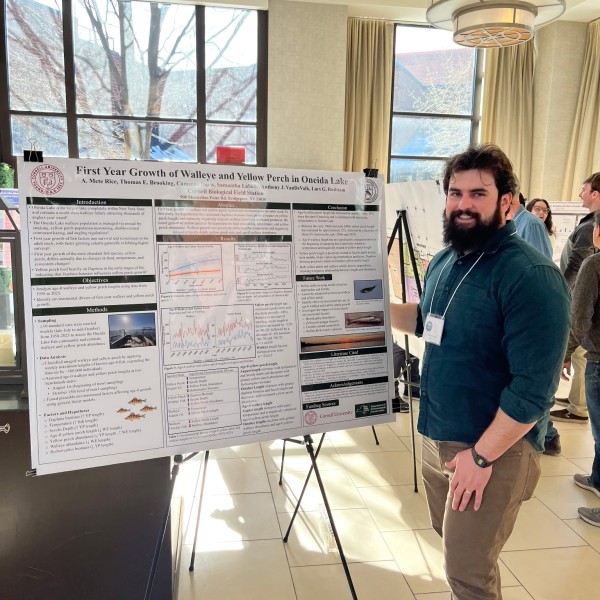The project focuses on developing infrastructure to establish an organic industry for grains such as bread wheat, naked barley, hulless oats, rye, emmer, spelt and einkorn.
“Grains are very nutritious and are a critical part of the human diet,” said project principal investigator Mark Sorrells, professor of plant breeding and genetics.
“Consumers tend to focus on wheat products and overlook some of the other very diverse and flavorful grains, such as ancient grains.”
In addition, the project aims to benefit organic vegetable growers by providing them with diverse crop options that they can rotate with high-value crops, such as food grains.
The USDA National Institute of Food and Agriculture Organic Agriculture Research and Extension Initiative grant has four objectives:
- Breeding: The team will evaluate germplasm and develop new varieties of small grains, including food-quality wheat, emmer, spelt, einkorn, naked barley, rye and naked oats. New varieties will be adapted to regional climates and the challenges of climate change. During this phase, researchers will assess grain culinary characteristics and nutritional quality.
- Organic management: Best practices for seed production, disease control, planting, harvesting and cleaning will be developed.
- Market assessment: The team will assess and increase opportunities to increase consumer demand for, and distribution of, local and regional organic grain. “This part is often overlooked,” Sorrells said. “There’s often a disconnect between the research or production and the consumers’ interests.” The group will work on establishing a supply chain for specialty markets.
- Outreach: The group will develop a program that connects key stakeholders in organic grain supply systems to each other, while providing the resources they need.
The team is working with New York state bakeries such as Wide Awake Bakery and Bread Alone Bakery to use alternative flours in baked goods. They also are collaborating with processors to get food products to consumers. For example, the nonprofit GrowNYC has grain stands at various farmers markets around New York City, including one at Union Square that is test marketing food grains as part of the project. The Artisan Grain Collaborative in Wisconsin is another collaborator seeking to promote a more regenerative food system.
Other researchers on the project are from the University of Vermont, the University of Wisconsin, the University of Maine, the University of Illinois, Oregon State University and South Dakota State University. An advisory committee consists of a baker, a grain processor, a marketer, a supply chain expert and two farmers.
This article also appeared in the Cornell Chronicle.
Header image: Artisanal bakers bake sourdough bread from wheat varieties at Wide Awake Bakery in Mecklenburg, New York. Photo by Allison Usavage/Cornell University





